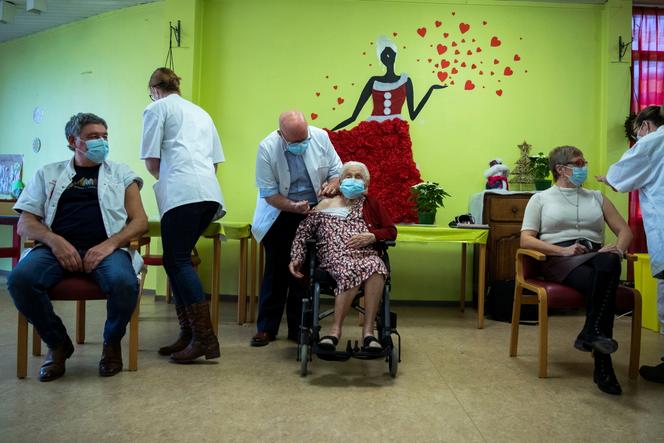


This is "positive news," Hans Henri P. Kluge, World Health Organization (WHO) regional director for Europe, told reporters on Tuesday, January 16. According to a study piloted by the WHO and published on January 13 on the MedRxiv website in preprint – not yet reviewed by independent researchers – vaccination against Covid-19 saved 1.4 million lives in this region between December 2020 and March 2023.
Looking closer at the results, 96% of those "saved" are over the age of 60. According to the study, the first booster doses of updated vaccines that were administered beginning in mid-2021, a few weeks before the Omicron variant caused the worst wave of infections to date, alone saved 700,000 people.
To obtain these estimates, the researchers studied the relationships between Covid-19 mortality rates, vaccination rates, and vaccine efficacy as established by the scientific literature.
"The evidence is irrefutable" concerning "the power of vaccines," Kluge emphasized, recalling that the priority populations for vaccination are the elderly, pregnant women, immunocompromised people and healthcare workers. He considered it "absolutely vital for vulnerable populations to stay up to date with their Covid-19 and influenza vaccinations as recommended," especially as healthcare systems are facing other epidemics this winter – such as respiratory infections due to the bacterium Mycoplasma pneumoniae, and even measles in some countries.
In the eyes of Bruno Lina, professor of virology at Hospices Civils de Lyon, the WHO study is "A + B proof that the game-changer against the pandemic was the rapid vaccination of a whole section of the population. This enabled collective immunity to be achieved very quickly, without having to go the 'infections' route, synonymous with severe forms of the disease and death."
For Antoine Flahault, director of the Institute of Global Health in Geneva, the WHO study, based on "a well-proven back-calculation method," provided an objective assessment of the fact that "life during the pandemic changed with vaccination, which may not have fulfilled all its promises and did not eradicate the virus, but did get us out of lockdown and reduced pressure on hospitals."
In this context, vulnerable groups "need to get boosted annually," stressed Marc-Alain Widdowson of WHO Europe. Yet coverage is losing steam. As of October 5, 2023, according to the European Centre for Disease Prevention and Control, more than 91% of people over the age of 60 in the European Union had received the basic two-dose vaccination schedule; 84% had received the first booster, 31% the second and 3% the third.
You have 50% of this article left to read. The rest is for subscribers only.
